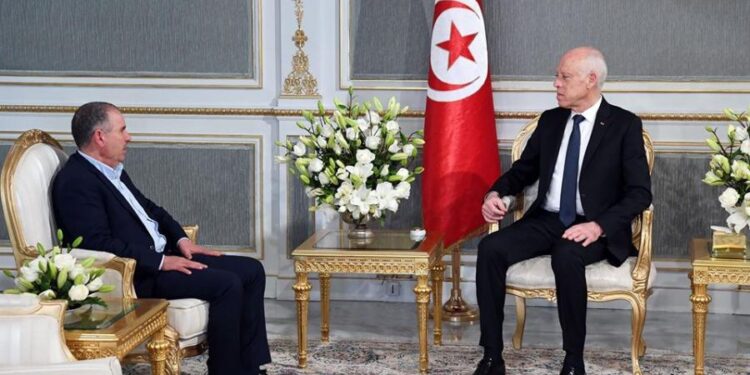The break, long underlying, now seems total. For several months, the tension between President Kaïs Saïed and the Tunisian Labor Union (UGTT) has not ceased to rise, fueled by deep differences on the conduct of the country’s affairs and the future of social dialogue.
Symbol of this growing ditch, the head of state has long received the secretary general of the union center, despite the warning signals and calls for dialogue.
The national transport strike, carried out over three days, formed the drop of water which overflowed the vase. Perceived as a demonstration of force by the UGTT, it was interpreted by the power as an act of unacceptable blocking in an already weakened economic context.
Yesterdaythe tone has a notch. Kaïs Saïed tackled the union center head -on, rejecting her version of the facts concerning what she describes “attack” against her premises. A public disavowal which, beyond the simple dispute on a specific incident, marks a fracture line now assumed. But, we can understand it, the president did not target UGTT as a historical institution – symbol of national and social struggles -, but the current management of the power plant, which is now under the fire of criticism.
In a clear political message, the president suggested that files could be opened and that accounts should be returned. A statement that sounds like a warning and augurs for a more direct confrontation in the coming weeks.
If Tunisia needs stability and dialogue to face its economic and social challenges, current verbal climbing risks closing the last doors of consultation. Between the presidency and the UGTT, time is no longer in signs of distrust, but with open confrontation.








